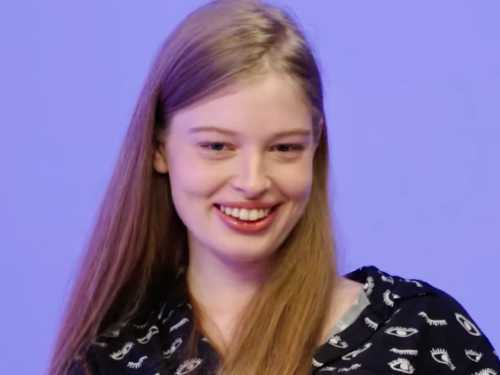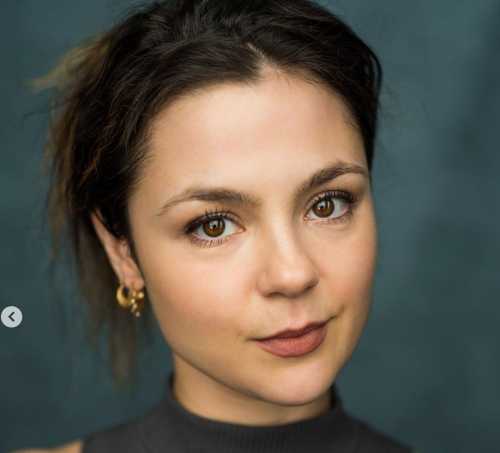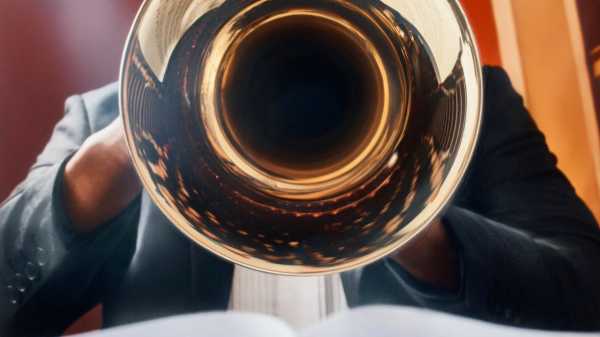
The Russian question dominated the year in classical music. In the wake of the invasion of Ukraine, major institutions finally began to extricate themselves from the sticky cultural tentacles of Vladimir Putin’s regime. Prior invasions, assassinations, and acts of repression had failed to impede the career of Valery Gergiev, Putin’s court conductor, who has amassed enormous wealth and is essentially a member of the oligarchy. Anna Netrebko’s admiration for Putin’s “strong, male energy,” not to mention her disdain for COVID protocols and her defense of blackface, had done little damage to her stardom. The Greek-Russian conductor Teodor Currentzis, whose bombastic revisionist projects receive funding from a Putin-aligned bank, had found a cult following and critical adoration. All that changed on February 24th, or soon thereafter. Gergiev’s career in the West is over; Netrebko is persona non grata at the Met; Currentzis is facing criticism, especially in Germany.
The jettisoning of a few problematic Russians allowed musical organizations to assume a mantle of virtue, although many of them had recalibrated their positions at a conspicuously late hour. (Just before the invasion began, Peter Gelb, the Met’s general manager, was in Moscow, monitoring a production of “Lohengrin” that the Met was to have co-produced with the Bolshoi.) In truth, no one is in a position to claim moral purity. Leading American opera houses and orchestras take funding from individual and corporate sources that are implicated in inequality, exploitation, and environmental destruction. American artists have no great record of standing up to this country’s imperialist foreign policy. The challenge, in this and in other spheres, is to support ethical practices without cloaking oneself in self-righteousness.
2022 in Review
New Yorker writers reflect on the year’s highs and lows.

Fortunately, drastic proposals to bar all Russian performers or remove Russian works from the repertory have gone unheeded. La Scala, the first institution to confront Gergiev after the invasion, is rightly defending its decision to open its season with Mussorgsky’s “Boris Godunov,” in the face of Ukrainian objections. Mussorgsky was, indeed, a Russian nationalist of mystical intensity; he was also a vicious anti-Semite, one who outdid Wagner by inserting blatant anti-Jewish characterizations into his music. All the same, “Boris” stands as the repertory’s definitive portrait of the corrosive madness of power. Every time I see Putin in his palace, sitting at his absurdly elongated table with paranoia written on his features, I think of the murderer Tsar in his final throes.
Ten Notable Performances of 2022
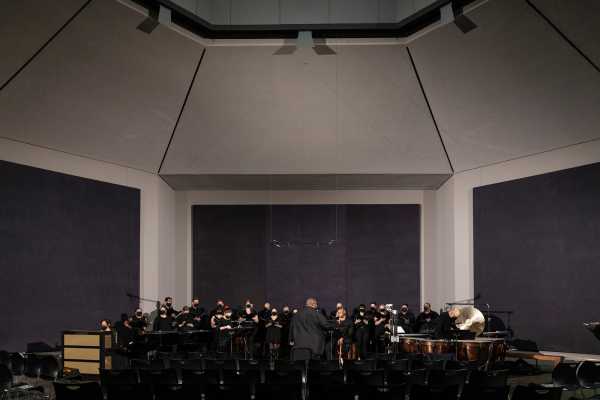
Photograph by Michael Starghill Jr. / NYT / Redux Tyshawn Sorey at Rothko Chapel
At the end of Morton Feldman’s wordless cantata “Rothko Chapel,” a melody in Hebraic style emerges from abstract textures, like a figure walking out of dense mist. Feldman’s momentous score had its première five decades ago, at the Rothko Chapel, in Houston; in February, the DaCamera ensemble and the Chapel marked the anniversary by premièring Tyshawn Sorey’s “Monochromatic Light (Afterlife),” an extended Feldman homage. Here, too, a theme materializes at the close: “Sometimes I Feel Like a Motherless Child.” Like Feldman’s tune, the spiritual carries immense memorial weight.
The L.A. Master Chorale
Switzerland has produced no musical titan to rival Monteverdi, Mozart, or Mahler, but in the twentieth century it brought forth composers of rarefied, retiring excellence. This year, I had two memorable encounters with modern Swiss masters. I spent a good part of the summer listening to Christian Gerhaher’s recording, on Sony Classical, of Othmar Schoeck’s song cycle “Elegie,” a shadowy landscape populated by fleeting forms. And, in February, I had the rare opportunity to hear a live performance—a more or less perfect one, courtesy of the L.A. Master Chorale—of Frank Martin’s ethereal, bittersweet Mass for Double Choir.
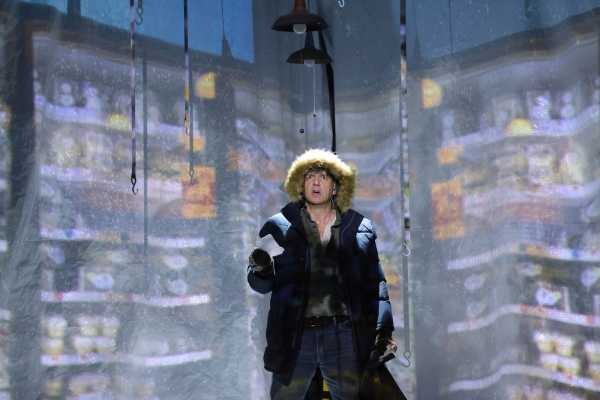
Photograph by Craig T. Mathew / Courtesy LA OperaDu Yun’s “In Our Daughter’s Eyes”
Du Yun, who won the 2017 Pulitzer Prize for music for her operatic dystopia “Angel’s Bone,” explores more intimate terrain in “In Our Daughter’s Eyes,” which had its première at L.A. Opera, in April, and will play at the Prototype Festival, in New York, in January. The new opera is a one-man show, with the baritone Nathan Gunn portraying a father-to-be who faces down his demons and flaws. Du Yun’s complex, seething textures helped Gunn to achieve a grittily detailed emotional realism of a kind I’ve seldom witnessed on an opera stage.
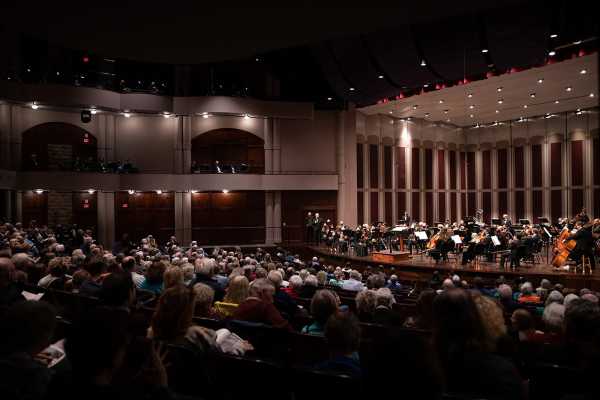
Photograph by Mollie Bolton / Courtesy South Dakota Symphony Orchestra The South Dakota Symphony
Ignore sloppy talk of a Big Five or Big Ten: dozens of orchestras are delivering first-rate performances across the country. For years, I’d been reading about the exploits of the South Dakota Symphony, which defies stereotypes of provincial conservatism by playing contemporary music on a routine basis. In the spring, I finally made it to Sioux Falls, where I heard a huge, new John Luther Adams piece, “An Atlas of Deep Time,” and saw a community in love with its orchestra.
Anthony Davis’s “X”
Since the hyper-creative director-impresario Yuval Sharon took over Detroit Opera, in 2020, the company has moved to the center of American opera discourse. This year’s schedule included a long-awaited revival of Anthony Davis’s “X,” about the life, death, and spiritual journey of Malcolm X. The bass-baritone Davóne Tines, magnetic in the title role, also sang in Sorey’s “Monochromatic Light” and made intensely memorable appearances at the Ojai Festival.
Wagner’s “Die Walküre” in Coburg
I spent much of May in Germany, exploring the country’s incomparable network of opera houses. The lesson is much the same as in the American orchestral field: bigger and richer is not necessarily better. In Coburg, a city of forty-one thousand, the young Swedish soprano Åsa Jäger took possession of the mighty role of Brünnhilde, her voice aglow with the confidence of arrival.
Street Symphony Performs Bach
In 2018, the Los Angeles-based violinist Vijay Gupta announced he was leaving the L.A. Philharmonic to devote his time to Street Symphony, which presents performances and workshops on Skid Row, in jails, and in other places where classical musicians seldom appear. In June, at Inner-City Arts, Gupta and a group of gifted collaborators, including the L.A. Master Chorale’s Scott Graff, offered Bach’s Cantata No. 82, “Ich habe genug” (“I have enough”), with interstitial monologues by the poet, teacher, and activist Linda Leigh, a longtime Skid Row resident. Leigh’s stories (about a school trip to South Korea; about her experiences with birth, abortion, and miscarriage; about her conversations with rideshare drivers) merged uncannily with Bach’s ageless meditations.
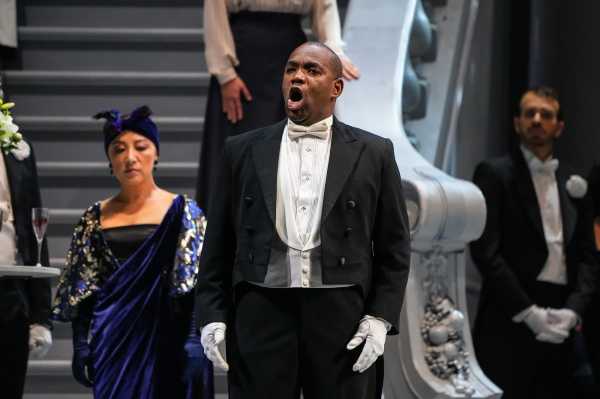
Photograph by Steven Pisano / Courtesy Opera PhiladelphiaLawrence Brownlee Sings Rossini
Opera Philadelphia is another ambitious smaller company that exercises an outsize influence. In 2013, it presented the East Coast première of Kevin Puts’s “Silent Night,” and in 2016 it gave the world première of Missy Mazzoli’s “Breaking the Waves.” Both composers, perhaps not coincidentally, have signed up with the Met; Puts’s “The Hours” has been playing in the big house, and Mazzoli is writing “Lincoln in the Bardo” for a future season. This fall, the company showed its bona fides in traditional fare, as Lawrence Brownlee lit up the stage in Rossini’s “Otello.”
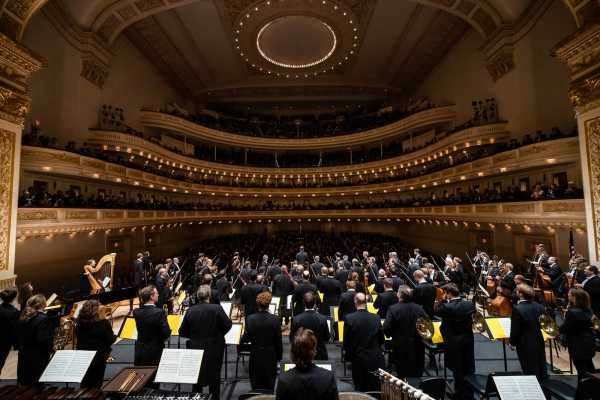
Photograph by Stephan Rabold / Courtesy Carnegie HallThe Berlin Philharmonic Plays Korngold
International orchestral tours have been slow to resume in the wake of the pandemic, and with good reason. The cost of transporting a hundred musicians is high, in financial terms and also environmental ones. It’s not enough for Orchestra X to be showing off its excellent Beethoven when a local band may offer a Beethoven of comparable quality. The Berlin Philharmonic, inarguably one of the world’s finest, justified its fall jaunt across the United States by delivering a possibly definitive account of Erich Wolfgang Korngold’s Symphony in F-Sharp. I’d been waiting almost forty years to hear this twilight masterpiece live; I went away happy.
Raven Chacon’s “Voiceless Mass”
When the Navajo composer Raven Chacon was asked to write a piece for a Thanksgiving concert in Milwaukee, he answered with “Voiceless Mass,” a glacial, desolate, requiem-like work for organ and ensemble. The score won over the jurors for the 2022 Pulitzer Prize for music, of whom I was one. In November, I got the chance to hear “Voiceless Mass” live, at the First Congregational Church of Los Angeles. The abyssal bass tones of the world’s second-largest church organ added a dimension that no recording could capture. At the climax, a bass drum began beating at widely spaced intervals, then accelerated and grew in volume before receding into silence. It’s as if an avenging spirit rapped at the door and then walked away.
Notable Recordings of 2022
-
Othmar Schoeck, “Elegie”; Christian Gerhaher, Heinz Holliger conducting the Basel Chamber Orchestra (Sony Classical)
-
Karol Szymanowski, Piano Works; Krystian Zimerman (DG)
-
Andrew McIntosh, “Little Jimmy,” “I have a lot to learn,” “Learning”; Yarn/Wire (Kairos)
-
Odeya Nini, “ODE” (via Bandcamp)
-
Wadada Leo Smith, String Quartets Nos. 1-12; RedKoral Quartet, with Smith, Alison Bjorkedal, Anthony Davis, Lynn Vartan, Stuart Fox, and Thomas Buckner (TUM)
-
Rachmaninoff, Piano Sonata No. 1, Moments Musicaux; Steven Osborne (Hyperion)
-
Jane Sheldon, “I am a tree, I am a mouth” (via Bandcamp)
-
Nico Muhly, “Stranger,” “Lorne Ys My Likinge,” “Impossible Things”; Nicholas Phan, Brooklyn Rider, Reginald Mobley, Lisa Kaplan, Colin Jacobsen, Eric Jacobsen conducting the Knights (Avie)
-
Boris Lyatoshynsky, Symphonies Nos. 1-5, “Grazhyna”; Theodore Kuchar conducting the Ukrainian State Symphony (Naxos)
-
Meyerbeer, “Robert le Diable”; John Osborn, Nicolas Courjal, Amina Edris, Erin Morley, Nico Darmanin, Joel Allison, Paco Garcia, Marc Minkowski conducting the Orchestre National Bordeaux Aquitaine and the Bordeaux National Opera Chorus (Bru Zane)
-
“Tristan”: works of Liszt, Henze, Wagner, and Mahler; Igor Levit, Franz Welser-Möst conducting the Leipzig Gewandhaus Orchestra (Sony Classical)
-
“EDEN”: music of Ives, Rachel Portman, Mahler, Marini, Mysliveček, Copland, Valentini, Cavalli, Gluck, Handel, and Wagner; Joyce DiDonato, Maxim Emelyanychev conducting Il Pomo d’Oro (Warner Classics)
-
Machaut, “Remede de Fortune”; Blue Heron, Les Délices (Blue Heron)
-
Bára Gísladóttir, “VÍDDIR”; Steinunn Vala Pálsdóttir, Áshildur Haraldsdóttir, Berglind María Tómasdóttir, Björg Brjánsdóttir, Dagný Marinósdóttir, Pamela De Sensi, Þuríður Jónsdóttir, Sólveig Magnúsdóttir, Kristín Ýr Jónsdóttir, Skúli Sverrisson, Frank Aarnink, Kjartan Guðnason, Matthias Engler (Dacapo)
-
“Mother Sister Daughter”: music from Santa Lucia convent, in Verona, and the San Matteo convent, in Arcetri, alongside pieces by Antoine Brumel, Maistre Jhan, Leonora d’Este, and Joanna Marsh; Laurie Stras leading Musica Secreta (Lucky Music)
-
Pedro de Cristo, Magnificat, Marian Antiphons, “Missa Salve Regina”; Luís Toscano leading Cupertinos (Hyperion)
-
Bach, St. Matthew Passion; Julian Prégardien, Stéphane Degout, Sabine Devieilhe, Hana Blažíková, Lucile Richardot, Tim Mead, Reinoud Van Mechelen, Emiliano Gonzalez Toro, Christian Immler, Raphaël Pichon conducting Pygmalion (Harmonia Mundi)
-
“Farewells”: songs of Czyż, Baird, Szymanowski, Łukaszewski, Karłowicz, and Moniuszko; Jakub Józef Orliński and Michał Biel (Warner Classics)
-
Rebecca Saunders, “void,” “Unbreathed,” “Skin”; Christian Dierstein, Dirk Rothbrust, Quatuor Diotima, Juliet Fraser, Enno Poppe conducting the Berlin Radio Symphony, Bas Wiegers conducting Klangforum Wien (NMC)
-
Rossini and Donizetti, French Bel Canto Arias; Lisette Oropesa, Corrado Rovaris conducting the Dresden Philharmonic and the Dresden State Opera Chorus (Pentatone)
-
Björk, “Fossora” (One Little Independent) ♦
Sourse: newyorker.com
